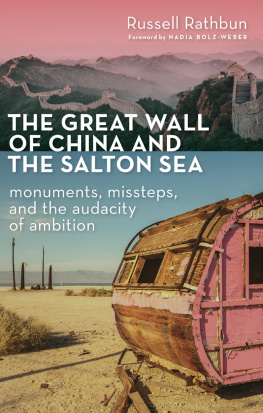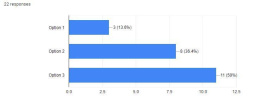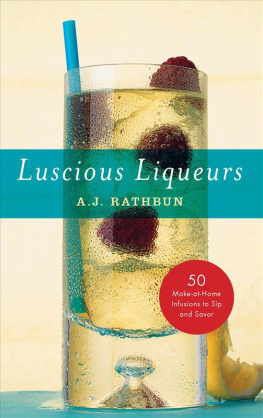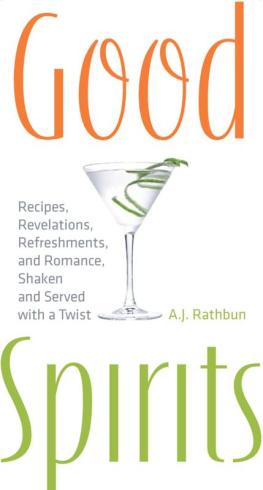THE GREAT WALL OF CHINA AND THE SALTON SEA
Monuments, Missteps, and the Audacity of Ambition
Russell Rathbun
WILLIAM B. EERDMANS PUBLISHING COMPANY
GRAND RAPIDS, MICHIGAN
Wm. B. Eerdmans Publishing Co.
2140 Oak Industrial Drive N.E., Grand Rapids, Michigan 49505
www.eerdmans.com
2017 Russell Rathbun
All rights reserved
Published 2017
23 22 21 20 19 18 171 2 3 4 5 6 7
ISBN 978-0-8028-7365-1
eISBN 978-1-4674-4621-1
Library of Congress Cataloging-in-Publication Data
Names: Rathbun, Russell, author.
Title: The Great Wall of China and the Salton Sea : monuments, missteps, and the audacity of ambition / Russell Rathbun.
Description: Grand Rapids : Eerdmans Publishing Co., 2017.
Identifiers: LCCN 2016035930 | ISBN 9780802873651 (cloth : alk. paper)
Subjects: LCSH: Rathbun, RussellTravel. | Christian biography. | SpiritualityChristianity. | Spiritual lifeChristianity.
Classification: LCC BR1725.R3355 A3 2017 | DDC 270.092 [B] dc23
LC record available at https://lccn.loc.gov/2016035930
For Betty Lee Rathbun and Franklin Lee Webb,
my mom and my grandpa
Contents
W hen Russell told me that he was writing about ambition in The Great Wall of China and the Salton Sea, I was thrilledbut also maybe a little nervous. Ive been thinking about ambition a lot recently, perhaps because I have a personal confusion about it. Theres this weird way in which I never really tried to be a writer or a speaker or a public personaIve just responded to things that were put in front of me.
The way I am thinking about it, ambition is having a certain idea I like to have of myself, or my church, or my organizationlike I should be published, or wouldnt it feel amazing to have my church be seen as open and affirming, or maybe if my organization was more multicultural, people would admire it. And when theres a distance between where I am and where that idea is manifested, then ambition is trying to figure out what I am going to do to cross that distance.
Ambition is something I have this odd relationship with. I know I have ambition because, for instance, if Oprah Winfreys people called and said, We want you to be part of this Super Soul Sunday, I would be like, Awesomeyes!
But what Ive been wondering is whats the difference between call and ambition, and when do we confuse the two? This is the question I keep coming back to.
There are some truly great aspects to human ambition. Ambition drives us to make beautiful things. Like the polio vaccine. Jonas Salk. That was ambition, right? But there is always a way in which the monumental results that benefit the world are also an accidental by-product of our own ego. Or our inflated ego results from our realized ambition. It is creation and it is destruction at the same time. The fact that so many of the good things have been wrought through an ambition to be someone important or to be remembered, though a self-serving motive, doesnt negate the value they bring to the world. Even for Jonas Salk, his motivation could have been, Im going to do something really important. Im going to be remembered. But yet, the effect was something really beautiful, glorious, healing, and life-giving to so many people.
There is simply no purity to be had in the world. Perhaps this is why I think we should be talking more honestly about the ambiguity of ambition, rather than pretending altruism is possible.
If there were no ambition, some great things wouldnt exist. Still, that doesnt mean that ambition is in some way pure. In his book Russell talks about the conflicting impulses of ambition in ways that are sometimes a little dark and sometimes a little hilarious.
Thirteen years ago, when I met Russell, I immediately felt like, Oh, thank God, Im not the only one. I had no idea that it was possible to love Jesus and maybe even love the church, and at the same time have a sort of pleasingly low anthropology and a sort of cutting cynicism. This particular combination you just dont often see in our fellows.
So when I met Russell, I immediately felt, Oh, I might be part of a tribe I didnt know existed. Discovering Russell and his church, House of Mercy, inspired my thinking that maybe it would be worth it to start a church. Maybe its possible to start a church Id actually want to show up to.
Russell is not afraid of the Bible, and because of that, there is no way to approach it that is off-limits for him; clearly he has the incredibly high regard for the text that you only witness in someone not afraid of the text. As a result Russell finds quirky, surprising, and completely unique interpretations of the text that shed light and give clarity to what it means to be a human living in the twenty-first century in a world spinning out of control.
The way he plays with the Flood and the Tower of Babel stories from Genesis in this book is brilliant. I myself am more prone to say, These are projections of what ancient people thought God must be like, so that people explained natural phenomena like a flood or an earthquake by saying, This happened, and so this must be God causing it. It must be Gods nature. But today we know that cant really be what God is like, right?
But Russell says, No, no, nothats definitely Gods personality according to the narrative in this biblical story, so lets deal with that. Lets figure out where to find the mercy starting from there. He is not going to apologize because God might come off like kind of an asshole sometimes. So many people treat God like their alcoholic father, you know? They have to apologize for himto make a lot of excuses for himsaying, But when hes sober, hes so nice. But Russell just jumps into the text, with a line like, Well, he did just kill nearly every living being in this flood. He is simply unafraid.
Russell thinks the Bible is strong enough to hold up to any approach. That, to me, is what having a high regard for Scripture looks like. He trusts the tradition and the Spirit embedded in these stories. And as readers of The Great Wall of China and the Salton Sea, you can trust that this book will change the way you understand these stories in history, and in the Bible, and most importantly, in the story were living now.
NADIA BOLZ-WEBER
T his book did not start out as the obsession with its subject matter that has increasingly occupied me for almost the last five years, and looks to be with me for at least another five, but I know whom to thank for it ending up this way. Lil Copan helped spark the original concept and made it better every step of the way. The germ of the book, as well as many of its themes, comes from an ongoing conversation with my colleague Rev. Debbie Blue. Erin Bowley has read and helped fix every incarnation of every chapter. And the book benefited from the mad skills of Mary Hietbrink, as well as Laura Bardolph Hubers and Rachel Bomberger, at Eerdmans.
I am indebted to the work of James Alison and Avivah Gottlieb Zornberg, my theological God Parents. If the book seems reminiscent of Sarah Vowell, thats because when I grow up, I want to be like her. In my research I have relied heavily on The SaltonSea: Yesterday and Today by Mildred de Stanley, Plagues and Pleasures on the Salton Sea by Chris Metzler and Jeff Springer, The First Thirty Years by Otis B. Tout, Greetings from the Salton Sea: Folly and Intervention in the Southern California Landscape, 1905-2005 by Kim Stringfellow, and Al Kalin. I am grateful for interviews, anecdotes, and advice from Connie Barrington of the Imperial County Free Library, Eric Garcia, Frank J. Salazar III and the Imperial Valley Desert Museum, The Salton Sea History Museum, Geneva and Dean Davidsen, Norm Wuytens, and Leanne Rutherford and the Imperial County Historical Society Pioneers Park Museum. I am also grateful for the hospitality of Ben Baker and Jodi Montgomery, and their memories of Luther Grass and Amos Jones. I also want to thank Greg Daniels, Nadia Bolz-Weber, Thad Dahlberg, Forest Lewis, Jonathan Haynes, my attorney John Soshnik, and Jeff and the MCTC Nursing Program. My thanks also go to Luke Finsaas at














